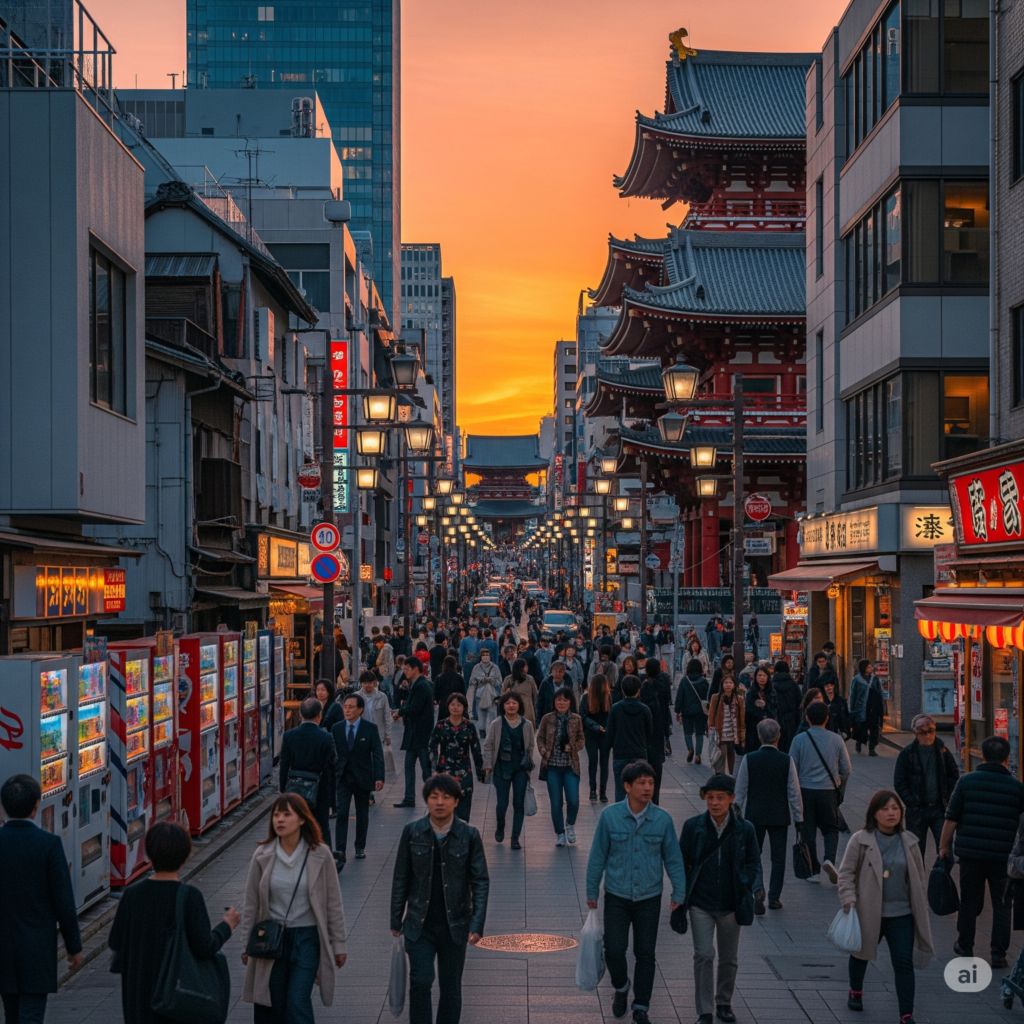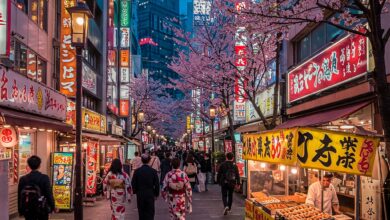Why is Tokyo considered the most futuristic city in the world?
Understand why Tokyo is considered the most advanced city in the world
Tokyo, a dazzling metropolis, is often hailed as the most futuristic city on Earth. From its towering skyscrapers to its cutting-edge technology and unparalleled efficiency, the Japanese capital feels like a glimpse into tomorrow. But what exactly makes Tokyo so incredibly forward-thinking? It’s more than just neon lights and robot cafes; it’s a unique blend of innovation, design, and a relentless pursuit of progress. Let’s dive into the fascinating reasons why Tokyo truly is the city of the future!
Tokyo’s Smart Urban Planning: Designing for Tomorrow’s Challenges

Tokyo isn’t just growing; it’s evolving with deliberate, smart urban planning. The city consistently implements innovative solutions for its dense population, from advanced public transportation systems that move millions seamlessly each day to earthquake-resistant architecture that pushes engineering boundaries. This foresight in design ensures that Tokyo remains functional, safe, and adaptable, setting a global standard for how modern megacities should be built.
Robotics and AI Integration: Beyond Just Human Workforce
Robots are not just a novelty in Tokyo; they are increasingly integrated into daily life and various industries. From automated hotel staff and customer service robots in stores to advanced industrial automatons, Tokyo embraces robotics as a solution for efficiency and innovation. Artificial Intelligence (AI) also plays a crucial role, powering smart city infrastructure, personalized services, and even contributing to groundbreaking research. This widespread adoption positions Tokyo at the forefront of the AI and robotics revolution.
Hyper-Efficient Public Transportation: A Model for Global Cities
Tokyo’s public transportation system is legendary for its punctuality, cleanliness, and sheer scale. The intricate network of trains and subways moves an astonishing number of people with incredible efficiency, almost eliminating the need for private cars within the city. Features like multi-level stations, precise arrival times, and seamless transfers showcase a level of sophistication that many other global cities aspire to, making it a true benchmark for future urban mobility.
Sustainable Innovations: Tokyo’s Green Vision for the Future

Despite its dense urban landscape, Tokyo is deeply committed to sustainability. The city is pioneering advanced waste management techniques, promoting green buildings with energy-efficient designs, and investing heavily in renewable energy sources. From rooftop gardens that combat the urban heat island effect to innovative water recycling systems, Tokyo demonstrates how a massive metropolis can strive for environmental harmony and a greener future.
Vertical Living and Space Optimization: Adapting to Density
With its vast population, Tokyo has mastered the art of vertical living and space optimization. Skyscrapers are not just tall buildings; they are integrated ecosystems featuring offices, retail, residential units, and even green spaces, all within one structure. This intelligent use of vertical space, combined with clever compact living solutions, showcases how cities can thrive and maintain quality of life even in extremely dense environments, offering lessons for urban development worldwide.
The Digital Frontier: Tokyo’s High-Tech Consumer Culture
Tokyo is a global leader in consumer technology, where the latest gadgets and digital innovations are commonplace. From advanced payment systems and interactive digital signage to high-speed internet accessible virtually everywhere, the city breathes technology. Its vibrant electronics districts and early adoption of new tech trends make it a living laboratory for future consumer experiences, pushing the boundaries of what’s possible in a connected world.
Safety and Security Measures: A Secure Future for Citizens
Tokyo is renowned for being one of the safest major cities in the world. This sense of security is partly due to advanced surveillance systems, innovative disaster preparedness protocols (especially for earthquakes), and a deeply ingrained culture of social responsibility. The city consistently invests in technologies and public awareness campaigns that contribute to a secure environment, creating a sense of peace that is increasingly rare in large urban centers.
Futuristic Architecture and Urban Aesthetics: A Visual Symphony
Tokyo’s skyline is a dynamic canvas of innovative and often breathtaking architecture. From the iconic Tokyo Skytree to uniquely designed mixed-use complexes, the city’s buildings often look like they’ve leaped out of a science fiction movie. This commitment to bold, avant-garde design, coupled with dazzling neon lights and meticulously clean streets, creates an aesthetic that is unmistakably futuristic and visually captivating.
Integrating Old and New: Tokyo’s Harmonious Evolution

What truly sets Tokyo apart is its ability to seamlessly integrate its ancient traditions with its futuristic advancements. Historic temples stand beside gleaming skyscrapers, and centuries-old customs coexist with cutting-edge technology. This harmonious blend of past and future gives Tokyo a unique character, showing that progress doesn’t mean abandoning heritage, but rather finding innovative ways for both to thrive side-by-side.
Constant Innovation and Adaptability: The Spirit of Progress
Ultimately, Tokyo’s futurism stems from its unwavering spirit of innovation and adaptability. The city is constantly reinventing itself, embracing new technologies, and learning from global challenges. This continuous cycle of progress, combined with a culture that values efficiency, precision, and forward-thinking solutions, ensures that Tokyo will likely remain at the forefront of urban evolution for decades to come.




